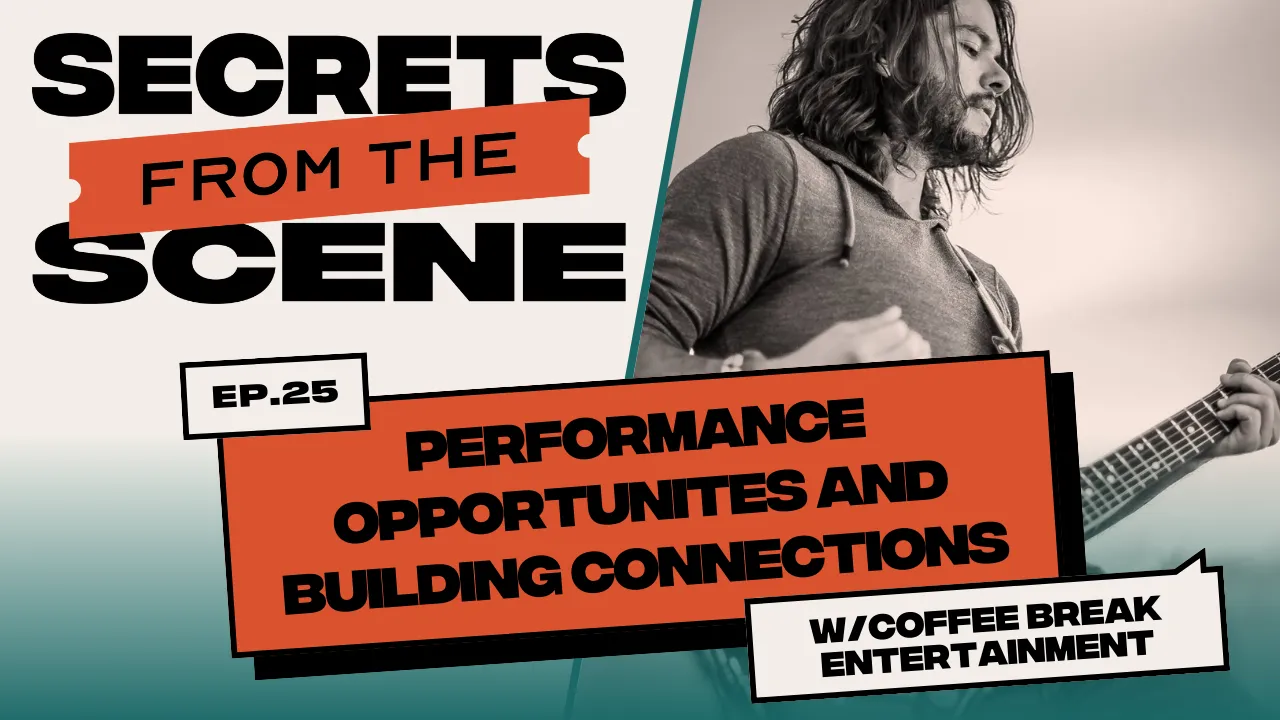Show Notes
In this episode I’m joined by Alek Glauvitz of Coffee Break Entertainment. Coffee Break Entertainment is a new booking and events agency located here in the Twin Cities, serving local artists and businesses by coordinating and hosting live music events. If you’re a singer-songwriter and you’ve been struggling to figure out where your next show is going to be, you may be in luck.
Alek’s company looks to connect artists with live performance opportunities. From new and emerging artists looking to play their first show at a small cafe to experienced acts hitting the road, Alek has experience making shows a success for both the artist and the venue.
Alek and I chat about his background as a musician, the services Coffee Break offers, and the many nuances of choosing and booking shows. We also discuss the benefits of building your connections in the community via live events, whether you’re attending as a performer or a fan.
Alek's commitment to empowering artists and enriching our live music culture shines through in every aspect of his work. So, whether you're craving a night of soulful tunes or seeking to elevate your own musical career, don't miss the opportunity to connect with Alek and Coffee Break Entertainment. Dive into the rhythm of our city, support some local talent, and discover the magic of showing up for live music.
watch now on YouTube:
Featured Song
Connect with Me
Give Feedback
📬 Send me a message: stephen@secretsfromthescene.com
💬 Suggest a guest or topic: podcast@secretsfromthescene.com
🎙️ Brought to you by:
--------------------------------
Thank You
This podcast is made possible by the hard work, expertise, and commitment of my team:
Max Greene and Joey Biehn. I'm forever grateful.
--------------------------------
Theme Music: "Thankful" Courtesy of LUEDVIG

